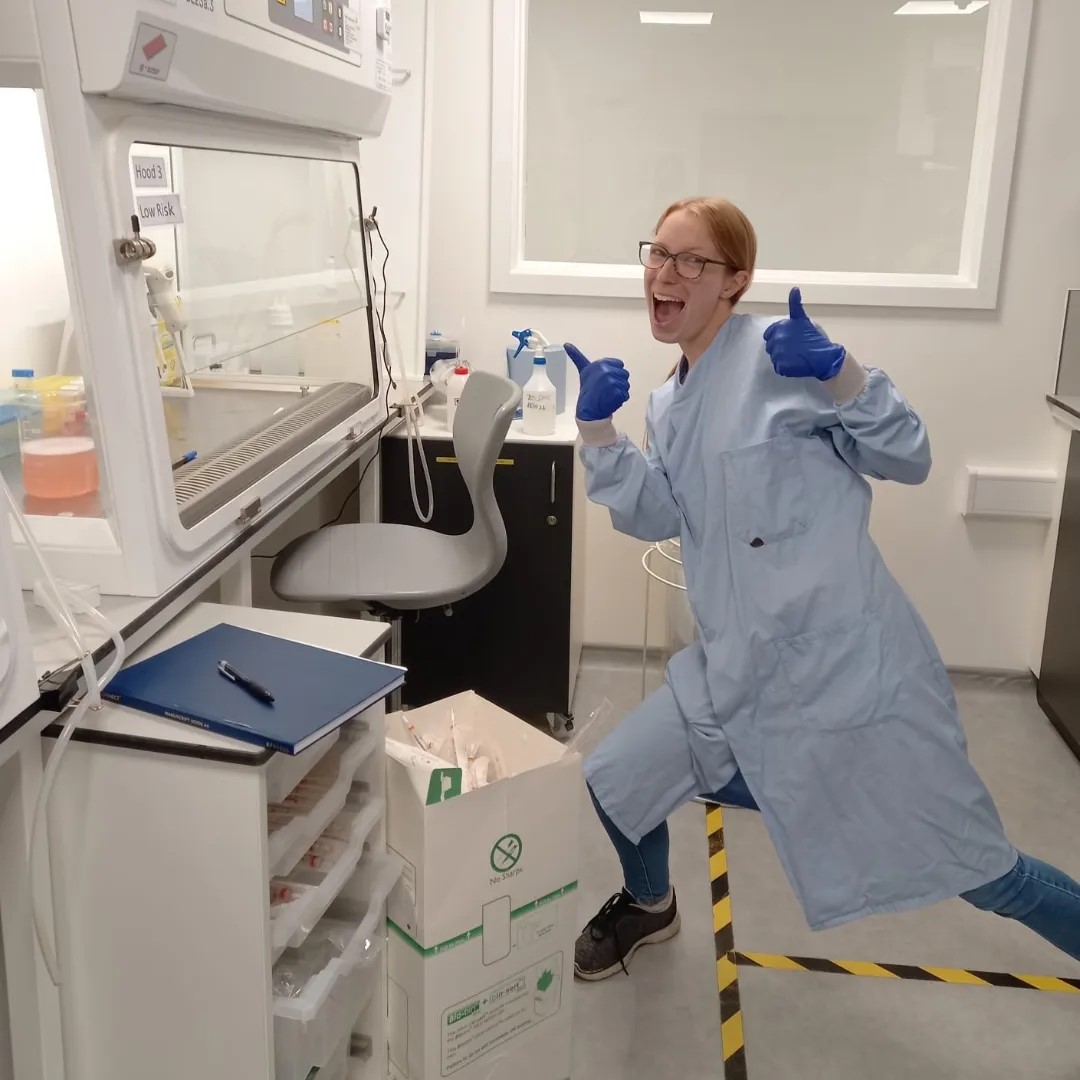
June 27, 2023, by mzyhe3
My Experience Doing a Cancer Sciences Summer Studentship
By Hannah Evans, cancer sciences student blogger
This time last year I applied to do the Cancer Sciences Summer Studentship. This was a five week lab project where I worked in the Biodiscovery Institute to learn new skills and techniques that could help me in the future. Here’s my experience doing the placement, to help you decide if you want to do one too.
Getting the placement
Firstly, to apply for the studentship you need to decide what topic to do a project on and get a superviser who will be happy to oversee it. I arranged meetings with a few lecturers that taught topics that interest me to try to work with them. Soon, I managed to plan what I could do under the supervision of Dave Bates. I filled out the application form and sent it off. By mid-May I found out I’d been accepted!
Skills and techniques
Cell Culture: The first thing that I learnt was how to grow mammalian cancer cells. This was a good place to start, as obviously to test if things impact cancer you need to first have a cancer cell to test on. I was taught how to grow cells that were adherant (stick to the bottom of the flask) and then given my own cells to grow which were suspension (float in the liquid in the flask). It was my responsibility to keep these cells alive for the whole five weeks. Many companies will appreciate you knowing how to do cell culture. This was undoubtedly a great technique to learn.
Nucleofections and transfections: There are many ways to get DNA into cells. I saw how a transfection works, before I nucleofected some cells myself. The transfections were slow, adding the plasmids to the cells and waiting 24 hours for results. On the plus side, the nucleofections that I did myself only took an hour. I found it really exciting to do my own experiments on the cells that I had been bringing up. Plus, you can make the cells go some funky colours, which is really fun to see.
Imaging cells: On the topic of seeing cells, I was taught how to image cells using different microscopes. Some light microscopes found in most labs were connected to tablets, allowing you to image what you can see. The more exciting imaging that I did was using the fluorescent microscopes. I was able to look at cells that others had transfected with plasmids which turned them red and green. I learnt how to take photos with the microscope, before then analysing the photos using ImageJ/Fiji. This was a really useful skill to learn, as it is really transferable to multiple labs.
ELISA tests: Once you have cells expressing certain genes, you can then look at how that influences protein expression. I shadowed and learnt from a Post Doc who was investigating if different splice variants of VEGF behaved differently in the presence of a particular protein. It was a long experiment, however it is a technique carried out by a myriad of labs all over the world. Having an understanding of how an ELISA works can be an invaluable skill to have.
Other perks of the studentship
In addition to learning lab skills, there are plenty of other benefits from doing a summer studentship.
Presentations: At the end of the project I was asked to present what I had done to my superviser. It was nerve-wracking, but being able to make and present a good presentation is a lifelong skill that will come in handy no matter what job you go into later on.
Relations: I was able to get to know a whole host of PhD students and Post Docs currently working in the BDI. I could ask them about their jobs, what they enjoyed most and how they got there. Just by talking to them I have a much better idea of the sorts of things I want to do in the future.
Salary: I was worried before I started that I wouldn’t be able to do a placement as it would mean I couldn’t work over summer. But, the great thing about this is that it is paid. Don’t get me wrong, you’re not getting paid much, but it is enough to cover rent, travel and food for whilst you’re there.
Visit our Laboratory work webpage to explore the organisations offering studentships in this area.
No comments yet, fill out a comment to be the first

Leave a Reply